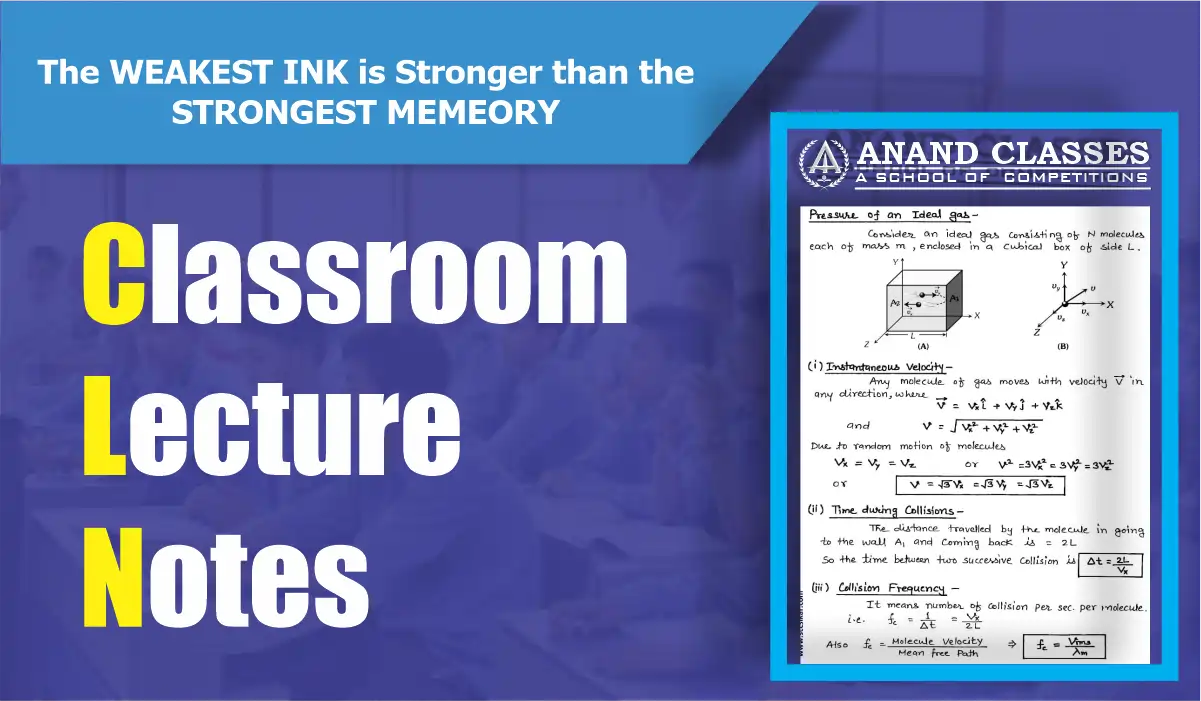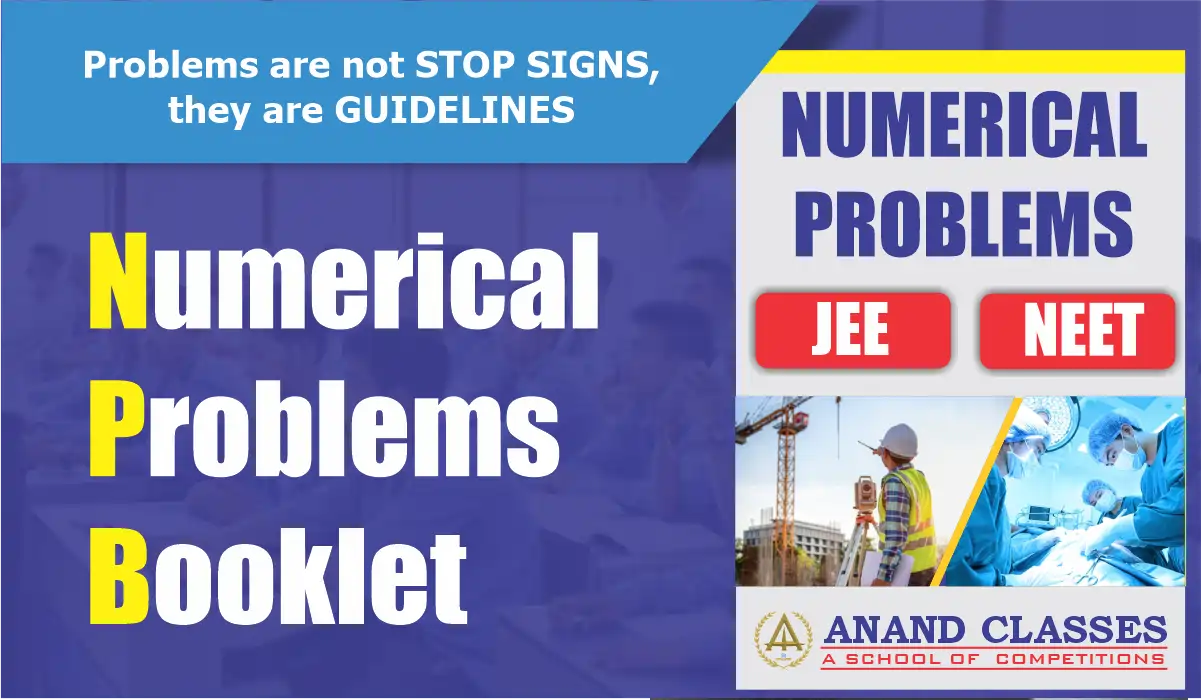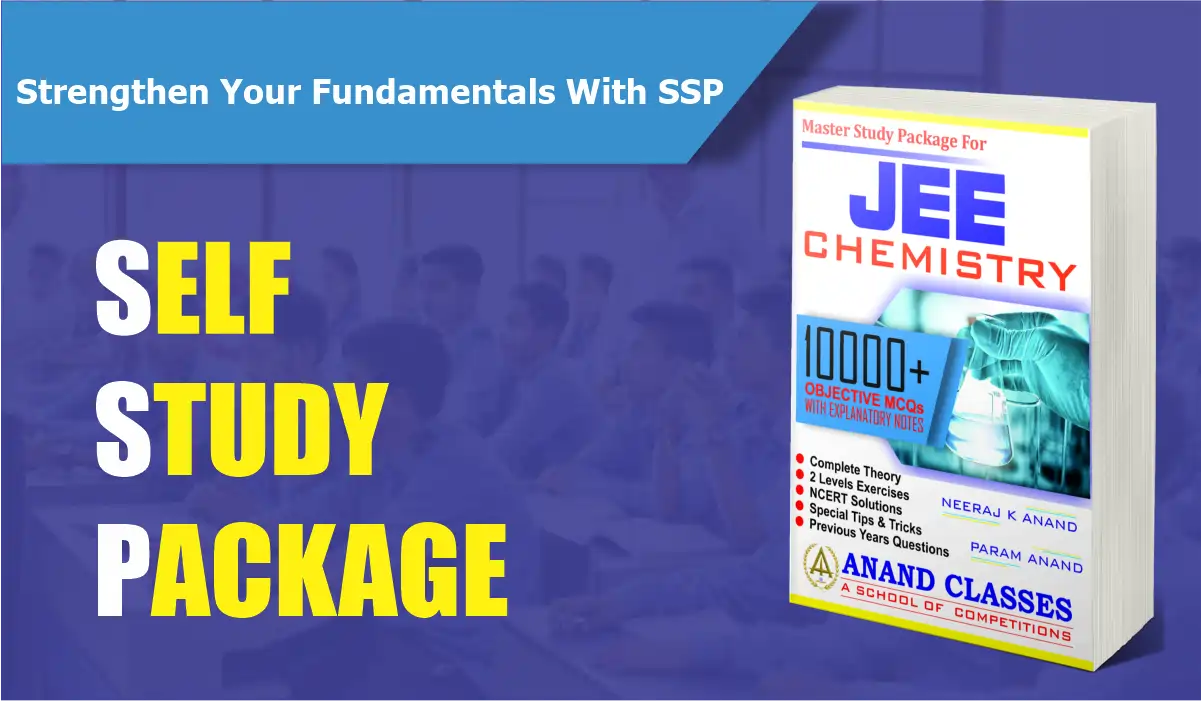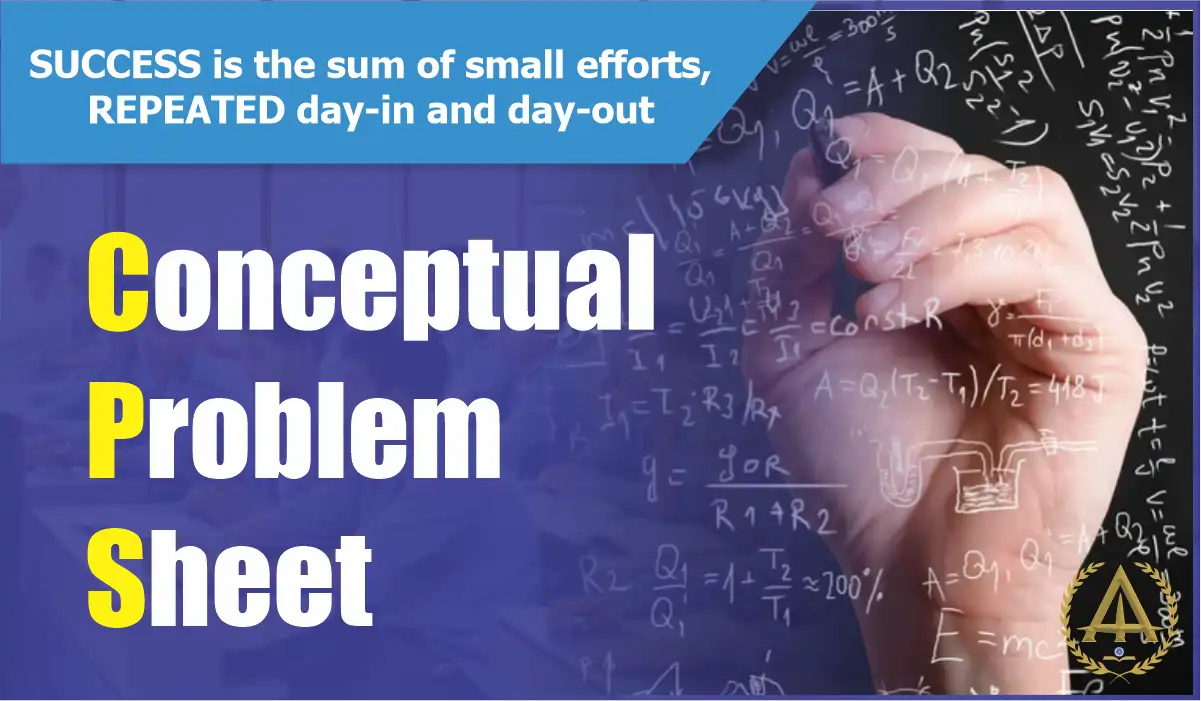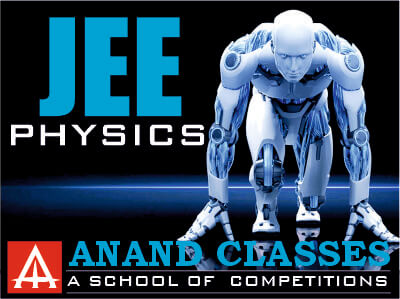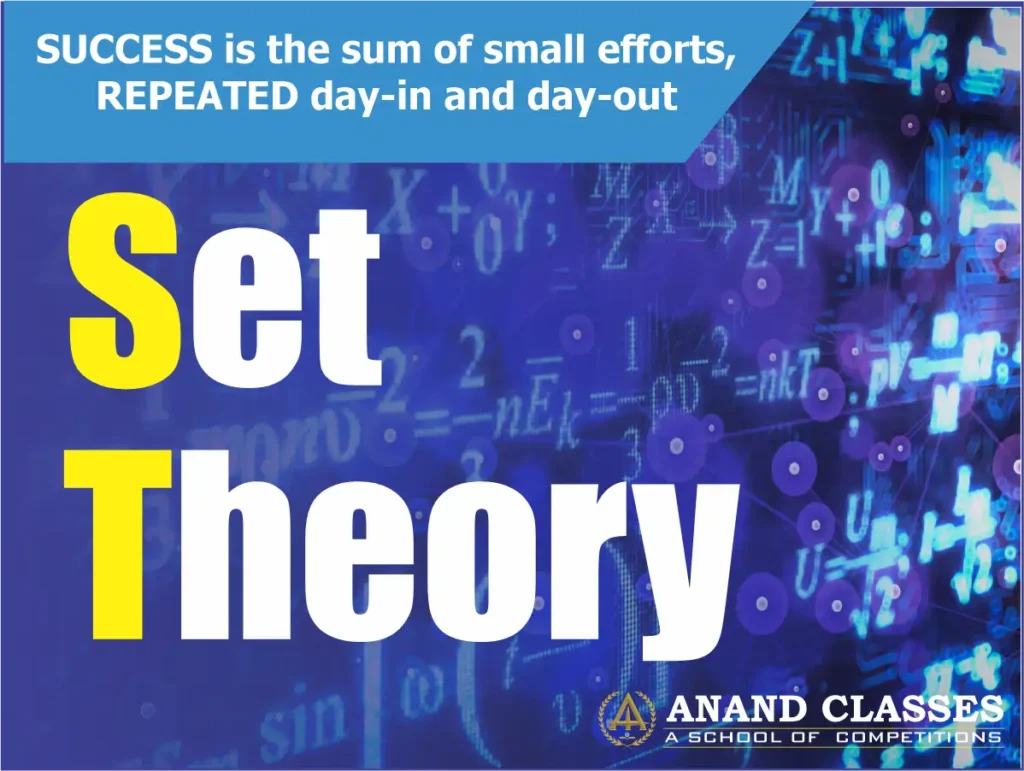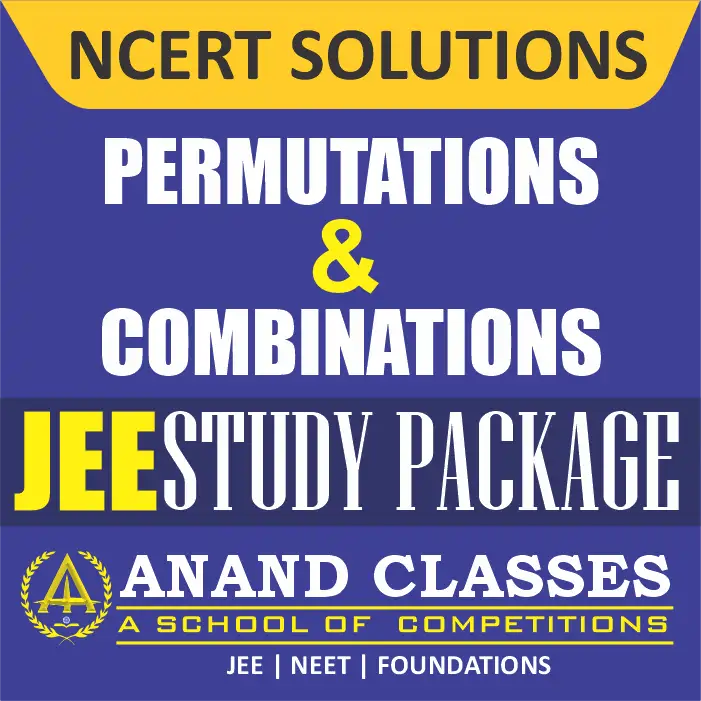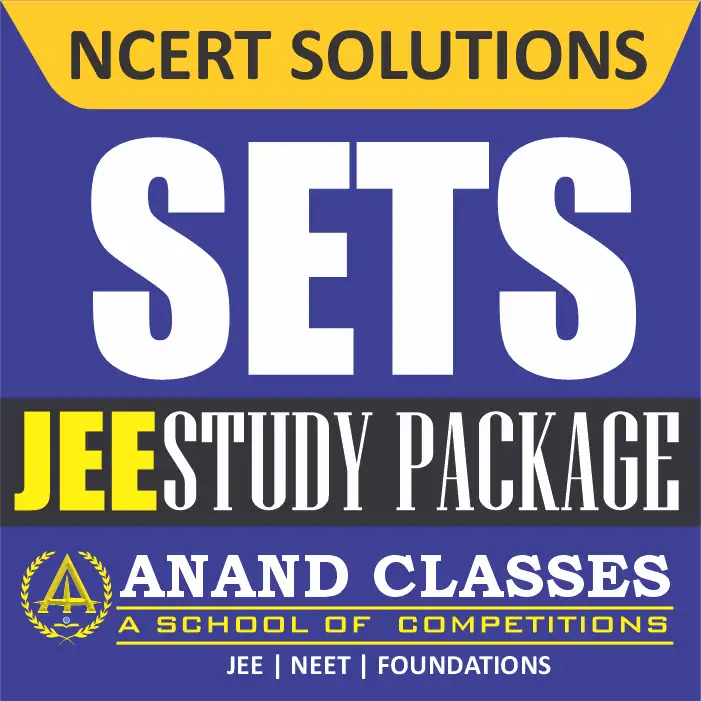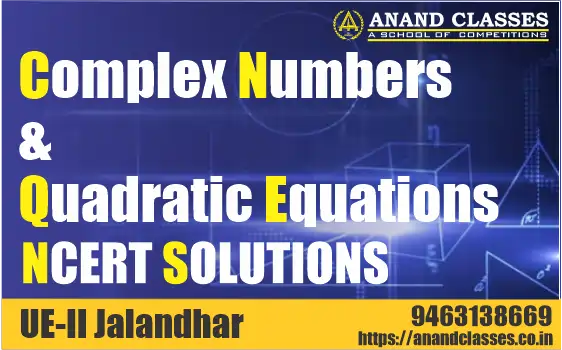Binomial Theorem NCERT Solutions Class 11 Maths Chapter 8 Exercise 8.1 8.2 Miscellaneous Free pdf Notes Study Material download-Anand Classes |
The NCERT Solutions Class 11 Chapter 8 Binomial Theorem can be downloaded at ANAND CLASSES’S easily here. NCERT solutions for class 11 maths chapter 8 Binomial Theorem deals with the application of the binomial theorem to evaluate the numerical values of numbers that are raised to a very large exponent. Up until this lesson, secondary students were familiar with finding the squares and cubes of numbers using algebraic identities. However, for higher powers, the calculations become difficult by using repeated multiplication hence, we use the binomial theorem to overcome this issue. It gives an easier way to expand a number in the standard form of (a + b) n, where n is an integer or a rational number.
Download the pdf of NCERT Solutions for Class 11 Maths Chapter 8 – Binomial Theorem
Download NCERT Book of Class 11 Maths Chapter 8 – Binomial Theorem
Access Exercisewise NCERT Solutions for Class 11 Maths Chapter 8 – Binomial Theorem
NCERT solutions class 11 maths chapter 8 are based on the fact that as we increase the index of an expansion the value of the terms follows a certain kind of pattern. For example, the total number of terms in an expansion is one more than the index, i.e, (a + b) 2 has an index of 2 but 3 terms in the expansion. Facts like these contributed to the discovery of the binomial theorem.
The class 11 maths NCERT solutions chapter 8 also introduces secondary students to the concept of Pascal’s triangle given by the French mathematician Blaise Pascal. The expansions for the higher powers of a binomial are also possible by using Pascal’s triangle. This topic is seen in many other similar chapters and is extremely useful as it helps to simplify very lengthy calculations. NCERT solutions Chapter 8 Binomial Theorem is a pretty simple lesson if students are able to understand and memorize the formula for this theorem. In this article, we will take a complete look at all the aspects associated with the Binomial Theorem and also download the exercise-wise solutions provided here.
- NCERT Solutions Class 11 Maths Chapter 8 Ex 8.1
- NCERT Solutions Class 11 Maths Chapter 8 Ex 8.2
- NCERT Solutions Class 11 Maths Chapter 8 Miscellaneous Exercise
NCERT Solutions for Class 11 Maths Chapter 8 – Binomial Theorem
The NCERT Solutions Class 11 Maths Chapter 8 binomial theorem is heavy on the calculations side. Thus, students must revise this lesson constantly so as to improve their speed and accuracy in performing such computations. Additionally, students must also have knowledge about combinations in order to understand the derivation of this theorem.
Access Answers to NCERT Class 11 Maths Chapter 8 – Binomial Theorem
The Chapter 8 Binomial Theorem of NCERT Solutions for Class 11 covers the topics given below.
- 8.1 Introduction to Binomial Theorem
- 8.2 Binomial Theorem for Positive Integral Indices
- Pascal’s Triangle
- 8.2.1 Binomial theorem for any positive integer n
- 8.2.2 Some special cases
- 8.3 General and Middle Terms
Given below is a detailed analysis of all the exercise-wise solutions:
- Class 11 Maths Chapter 8 Ex 8.1 – 14 Questions
- Class 11 Maths Chapter 8 Ex 8.2 – 12 Questions
- Class 11 Maths Chapter 8 Miscellaneous Ex – 10 Questions
Topics Covered: The topics under class 11 maths NCERT solutions chapter 8 are using the binomial theorem to expand expressions and finding the general term as well as the middle term in an exponential expression.
Total Questions: Class 11 maths chapter 8 Binomial Theorem consists of a total of 36 questions which have been divided into 14 straightforward formula-based sums, 6 intermediate, and 16 challenging problems.
List of Formulas in NCERT Solutions Class 11 Maths Chapter 8 – Binomial Theorem
NCERT solutions class 11 maths chapter 8 is based on the binomial theorem which is essentially a formula. This formula has been proven with the help of mathematical induction. Additionally, in this lesson, the binomial theorem has been applied to only positive integer indices. students need to be well-versed with this formula in order to solve the questions effectively. Using the binomial theorem students can also pinpoint any term in a binomial expansion. The formulas used in the NCERT solutions for class 11 maths chapter 8 are given below:
- Binomial Theorem: (a + b) n = nC0 a n + nC1 a n – 1b + nC2 a n – 2b 2 + …+ nCn – 1b n – 1 + nCn b n
- The coefficients of the expansions are arranged in an array. This array is called Pascal’s triangle.
- The general term of an expansion (a + b)n is Tr + 1 = nCr an – r. br
- If n is even in (a + b) n, then the middle term is given by (n/2 + 1)th
- If n is even in (a + b) n, then the middle terms are given by [(n+1)/2]th and [(n+1)/2 + 1]th terms
FAQs on NCERT Solutions Class 11 Maths Chapter 8 – Binomial Theorem
Q1
Why are NCERT Solutions Class 11 Maths Chapter 8 Important?
NCERT Solutions Class 11 Maths Chapter 8 helps in giving students a deep-seated understanding of the topic as it provides explanations to each step of the problems. Additionally, it also helps students present their examination papers in a clear and structured manner. Thus, these solutions are a vital resource for studying.
Q2
Do I Need to Practice all Questions Provided in Class 11 Maths NCERT Solutions Binomial Theorem?
It is advisable to practice all sums provided in NCERT Solutions Class 11 Maths Binomial Theorem as these are arranged in different formats. Each problem is designed to give students an in-depth knowledge of some aspect related to the topic. By revising all questions students can build their confidence and attempt any type of problem that might appear on an examination.
Q3
What are the Important Topics Covered in NCERT Solutions Class 11 Maths Chapter 8?
The NCERT Solutions Class 11 Maths Chapter 8 covers two major topics namely – expansion of expressions using binomial theorem and pinpointing a term within an exponential expression. Both topics are very important and come with vital formulas. Thus, students need to allot an equal amount of time in studying them thoroughly.
Q4
How Many Questions are there in NCERT Solutions Class 11 Maths Chapter 8 Binomial Theorem?
There are 36 sums in the NCERT Solutions Class 11 Maths Chapter 8 Binomial Theorem that are spread out among 3 exercises. Out of these, the miscellaneous exercise consists of high-order thinking problems that require students to employ their critical thinking skills. These sums have been curated by experts in the field of mathematics and are very important from an examination point of view.
Q5
What are the Important Formulas in NCERT Solutions Class 11 Maths Chapter 8?
The important formulas in the NCERT Solutions Class 11 Maths Chapter 8 are the binomial theorem, finding the general term of an expansion as well as finding the middle terms. There are several levels of questions available in the NCERT textbook that enable students to develop a strong foundation of these topics.
Q6
How CBSE Students can utilize NCERT Solutions Class 11 Maths Chapter 8 effectively?
Students first need to have a good understanding of combinations as well as mathematical induction to learn how the binomial theorem originated. The next step is to memorize the binomial formula and apply them to a wide range of sums outlined in the NCERT textbook. Finally, students should consult the NCERT Solutions Class 11 Maths Chapter 8 to cross-check their answers as well as develop a good understanding of this topic.
In the Binomial Theorem, explain the properties of positive integers covered in the NCERT Solutions for Class 11 Maths Chapter 8.
Best JEE Mains and Advanced Coaching Institute in Jalandhar
ANAND CLASSES offers JEE Main & Advanced Exam Coaching Center in Urban Estate Phase-II Jalandhar.
ANAND CLASSES pioneered itself as the best coaching institute for the preparation of IIT JEE (Main + Advanced). We provide systematic coaching and competitive environment to the JEE (Main + Advanced) aspirants with an outstanding preparation capability and infrastructure facilities, which has made it to the first choice of the students. We have a team of highly qualified and competent faculties dedicated towards the students’ performance and provide quality education to the students.






